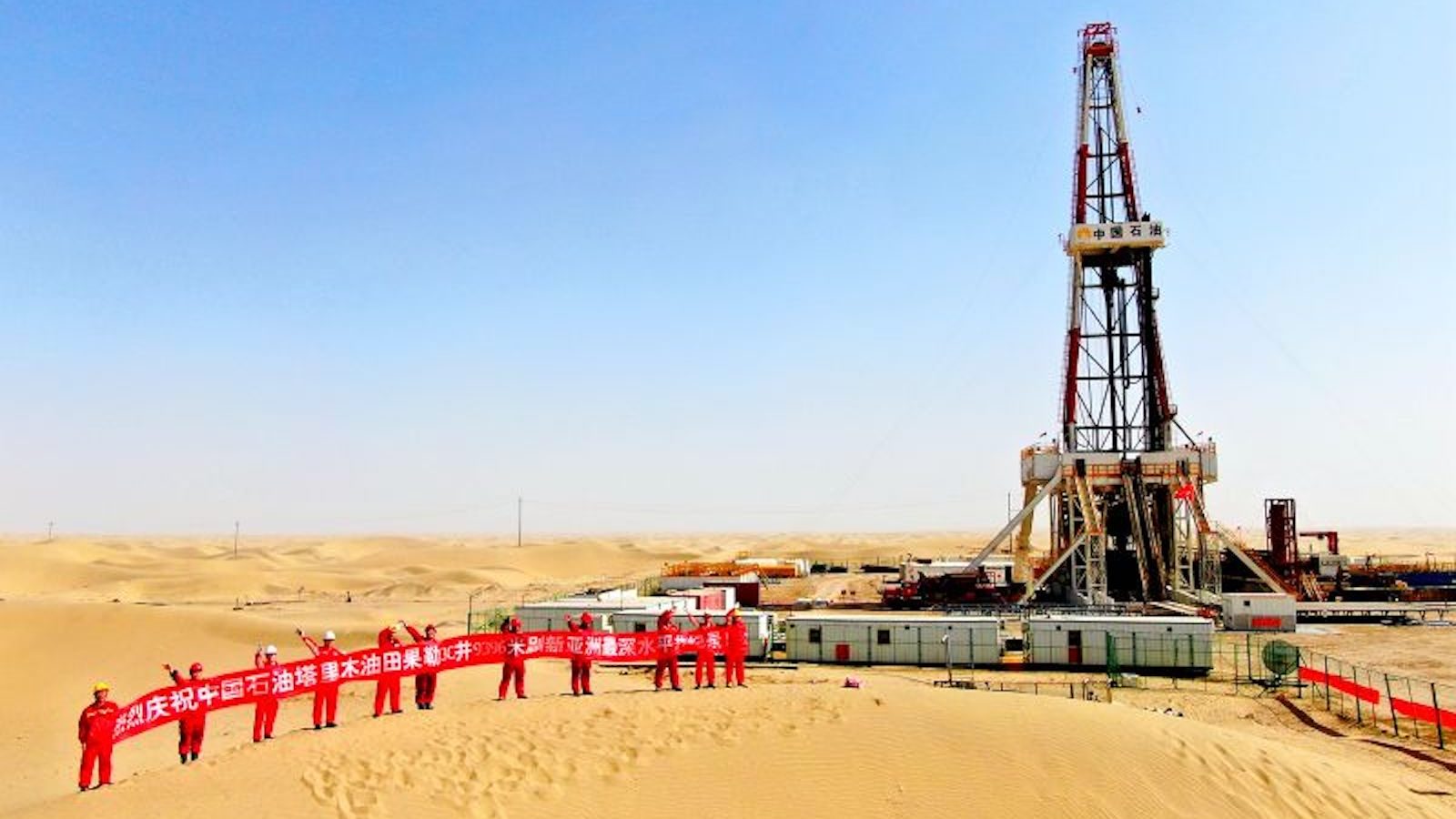(CNN) – Chinese engineers broke ground on Thursday in a new super-deep well that will penetrate the Earth’s crust as the country intensifies its search for natural resources hidden thousands of meters underground.
According to the New China News Agency (Xinhua), the hole will eventually reach 10,520 meters in the ground in the Sichuan Basin in southwestern China. The area is an important area for gas production and engineers are expected to find reserves of natural gas there, according to the report.
The announcement came just weeks after China began drilling another super-deep well, which is scheduled to extend deep into the earth, with a depth of 11,100 metres. This project is located in the Tarim Basin in northwest China’s Xinjiang Autonomous Region.
If completed, it will be between two of the deepest man-made wells in the world. However, they will not be the deepest.
That record is currently held by the now-defunct Kola deep well in northwest Russia, a Soviet-era scientific drilling project that took 20 years to complete and reached 40,000 feet.
These ultra-deep holes extend far beyond Mount Everest from top to bottom, which is about 8,800 meters high.
Humans have made it to the moon, but when it comes to exploring the depths beneath our feet, we’ve only scratched the surface of our planet.
Deep drilling allows scientists to learn more about how the Earth formed, with the crust serving as a geological timeline for the formation of the world.
But there are also strong commercial incentives: to tap into lucrative energy reserves buried deep.
The two companies involved in the Chinese wells are major state-owned oil conglomerates.
The latest project in the Sichuan Basin is being operated by PetroChina Southwest Oil and Gasfield Co, a subsidiary of China National Petroleum Corporation, one of China’s largest state-owned energy companies, according to Xinhua News Agency.
Calling it a step of “great significance,” state media said the effort aims to explore deeply buried resources while “advancing the progress of core technology and capacity of Chinese oil and gas engineering equipment.”
“The drilling will reveal the secrets of evolution under the Chinese formation,” he said, referring to the way the rocks are arranged in the Sichuan Basin.
Chen Lili, deputy chief engineer of PetroChina Southwest Oil, told state media that they expect to overcome a series of “world-class challenges” during the drilling operation.
Xinhua unveiled the Xinjiang project earlier, describing it as a “telescope” into the deepest tip on Earth, with its 2,000-tonne design tasked with penetrating more than 10 continental layers.
He said the drilling rig can withstand 200 degrees Celsius and 1,700 times the atmospheric pressure.
Sinopec Corp. reported in May that it had encountered large flows of oil and gas from an exploration well in the Tarim Basin at a depth of 8,591 meters below the surface.
China, the world’s second largest economy and the world’s largest carbon emitter, has huge energy needs. Chinese leader Xi Jinping has declared that future energy security is a national security priority.
China has become a world leader in renewable energy: It is on track to double its wind and solar power capacity and meet its 2030 clean energy goals five years early, according to a recent report.
But it is also the world’s largest producer of pollution from global warming, and coal production is increasing.
The United States is the second largest carbon emitter in the world.
US climate envoy John Kerry met Chinese officials in Beijing this week and called for faster action to deal with the climate crisis.
Xi did not meet Kerry this week. But during Kerry’s visit, Xi told a national conference on environmental protection that China’s commitment to two carbon targets — a carbon peak by 2030 and carbon neutrality by 2060 — was “unwavering,” according to Xinhua. However, he clarified that “the manner, method, speed and intensity of achieving this goal must and must be determined by ourselves and not influenced by others.”

“Music buff. Social media lover. Web specialist. Analyst. Organizer. Travel trailblazer.”

:quality(85)/cloudfront-us-east-1.images.arcpublishing.com/infobae/TEQF6EONZRFGLLLDIDD4L2O4EE.jpg)

:quality(75)/cloudfront-us-east-1.images.arcpublishing.com/elcomercio/XU32LRAEZFDDPNVHLFU3CKVBYY.jpg)



More Stories
Sheinbaum, Galvez, Mainz campaign wrap-up, news and more
Sheinbaum and Mainz’s CDMX campaign wraps up: Road Alternatives and Street Closures
Ortega attacks Humberto Ortega and declares him a “traitor to the country”